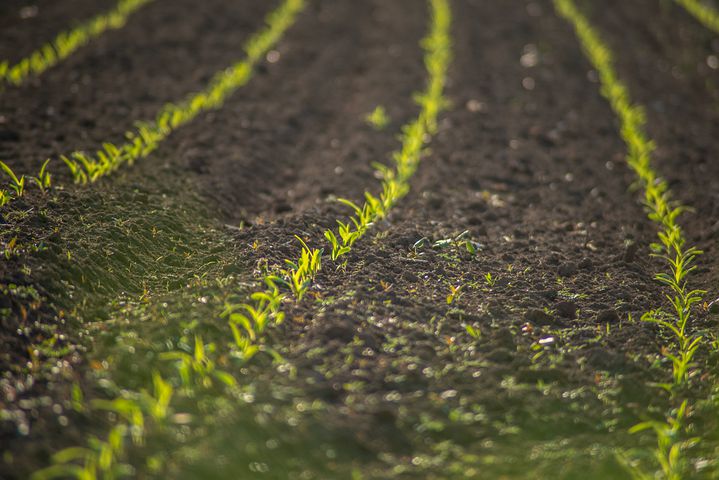The Intergovernmental Panel on Climate Change (IPCC) released its new report on 28 February, warning that climate change is already affecting food production and availability, exposing millions of people to severe food insecurity. Family farming is central to tackling climate change and responding in a sustainable, inclusive and viable way to the nutritional needs of the world’s population.
The new IPCC report -finally- takes a closer look at the impact of climate change on food production systems. The report highlights that yields of some crops (such as maize and wheat) have declined in many regions and that rising temperatures will continue to affect food production, with an estimated increase of up to 29% in the cost of cereals by 2050.
The UN report recalls that as a result of climate change and land degradation, one million animal and plant species are at risk of extinction. For the World Rural Forum, it would be good if the report also directly acknowledged the serious danger that climate change poses for the future of family farmers.
Family farmers produce 80% of the food consumed in the world, yet they are highly exposed to climate change and its effects, such as droughts, floods, loss of soil organic matter and changes in weather patterns.
It is worth noting that the situation will worsen, with a significant reduction in crop production affecting the welfare of thousands of farmers, who are also among the most vulnerable people in the world. Migration caused by the climate crisis is a very palpable reality in large parts of the world.
The new Climate Change report emphasises that current policies and emission commitments put the world on track for 2.3-2.7°C of warming. With a temperature rise above 1.5°C, the risk of simultaneous maize crop failures in different major food-producing regions will increase, threatening global maize supply chains. If warming reaches 2°C, it will no longer be possible to grow commodity crops in many areas, especially in the tropics, without adaptation measures that are not currently available. Pollination and soil health will be weakened by further warming, and agricultural pests and diseases will spread. Increased risks of malnutrition would be particularly high in sub-Saharan Africa, South Asia, Central and South America and small Pacific islands for example.
The report warns that climate change will further exacerbate inequities, with GDP losses in the most vulnerable countries estimated at 64%. In 2021, a region in southern Madagascar experienced – and is still experiencing – what is likely to be considered the world’s first climate change famine, due to an unprecedented drought, the worst in 40 years. As a result, harvests of crops such as rice, maize and cassava are expected to be less than half the average of the past five years.
A sustained temperature rise can trigger a cascade of less obvious climate impacts that directly affect family farming. For example, sustained increases in temperatures that decrease soil moisture suppress plant growth, which in turn suppresses rainfall, leading to more drought.
Within their means, many family farmers are already adapting to climate change quickly and effectively, protecting nature and producing food more sustainably. But they cannot do it alone.
In the most vulnerable regions, they certainly need support to implement diversification strategies – such as intercropping, agroforestry, sustainable water management, use of local varieties – to access training programmes, to ensure their participation in shorter and more inclusive value chains, as well as to strengthen their organisations and cooperatives, towards their work of producing healthy and nutritious food.
Family farmers are uniquely positioned to be an integral part of the global response to climate change, including their role in climate change mitigation and adaptation. The UN General Assembly has already recognised their strategic role and declared the United Nations Decade of Family Farming (UNDFF) as a central instrument to unlock their transformative potential.
For family farming organisations, climate action is an important part of a broader comprehensive development path that involves putting in place the frameworks, strategies and resources that will help them to cope with constant changes – political, environmental, economic or health crises-, unequal access to land, the gender gap, out-migration of rural youth, difficulties in accessing markets, imbalances in the value chain, etc. The IPCC report emphasises that “the costs of inaction far outweigh the costs of mitigation and adaptation”. Family farmers must therefore be recognised as solution providers and positioned as central actors in future climate resilience debates and funds. Some estimates suggest that only 10% of climate-related funds reach what could be called the local level and only 1.7% reach small-scale producers and their organisations.
It is crucial that spaces are created for representatives of family farming organisations to participate in the Conferences of the Parties to Multilateral Environmental Agreements such as the United Nations Framework Convention on Climate Change, the United Nations Convention to Combat Desertification and the Convention on Biological Diversity.
Without family farming, there is no future: let’s recognise and support family farmers to unleash their transformative potential.



